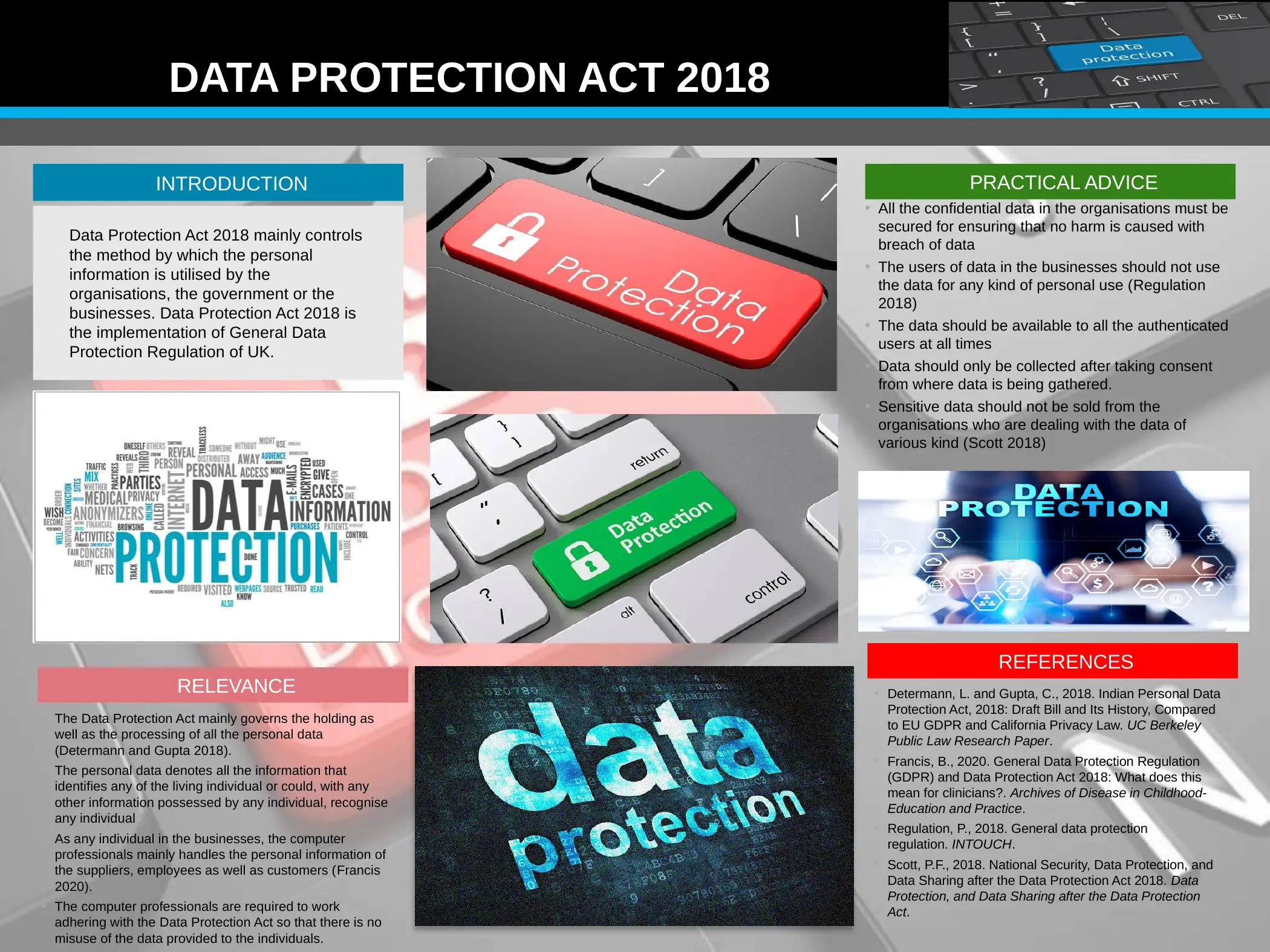Data Protection Act 2018: Legal and Ethical Framework in Computing
VerifiedAdded on 2022/08/20
|1
|375
|18
Project
AI Summary
This project delves into the Data Protection Act 2018, examining its relevance, practical implications, and impact on computing professionals. The analysis references key legal frameworks like the GDPR and explores how the Act governs the handling of personal data within organizations. It emphasizes the responsibilities of computing professionals in ensuring data security, adhering to ethical guidelines, and preventing misuse of personal information. The project highlights the importance of obtaining consent, protecting sensitive data, and providing access to authorized users. This work aims to provide a comprehensive understanding of the Act and its practical application in the computing industry. This assignment is contributed by a student and is published on Desklib, a platform providing AI-based study tools for students.







![[object Object]](/_next/static/media/star-bottom.7253800d.svg)